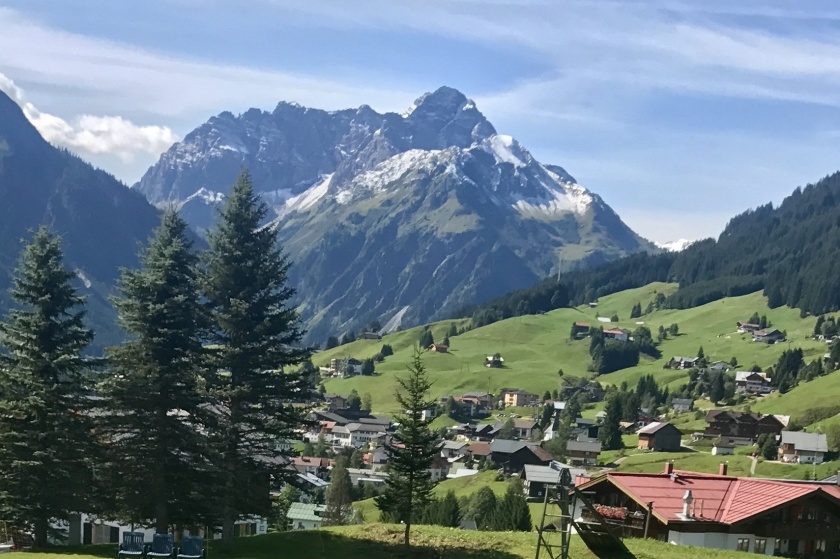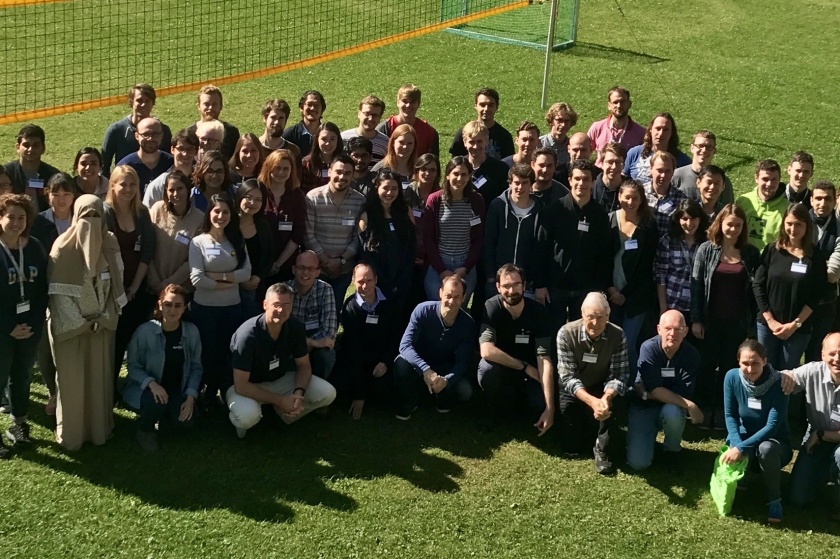Registration for Summer School Quantsol is now open!

The Quantsol will be held from 2. to 9. September 2018 in Hirschegg, Kleinwalsertal, Austria.
© K.Lips /HZB

Learning about solar fuels and photovoltaics goes green: Last year’s Quantsol students came from all over the world to meet solar energy experts in the Austrian Alps. The location offers space for 56 students. © K. Lips /HZB
It is already the eleventh time that the International Summer School on Photovoltaics and New Concepts of Quantum Solar Energy Conversion (Quantsol) will be held from 2. to 9. September 2018 in Hirschegg, Kleinwalsertal, Austria. The school is organized by the Helmholtz-Zentrum Berlin and the Technical University of Ilmenau. Applications can be submitted through the school’s homepage until May 18th , 2018.
“The Quantsol summer school offers a very comprehensive introduction to the field of photovoltaics and photocatalysis and is a great learning experience and a “must attend” for PhD students and postdocs in their early career. In the past, we have received an overwhelmingly positive feedback leading to oversubscription of the school every year” says Prof. Dr. Klaus Lips from Helmholtz-Zentrum Berlin.
Invited speakers, all internationally recognized scientists from leading world institutions, will give lectures covering topics on the fundamental principles of the conversion of solar energy into chemical and electrical energy as well as the physical and technical challenges of their technological implementation. Another focus lies on solar-specific material science and their characterization. In addition, the school will give hands-on training on how to build your own solar cell as well as an introduction to solar cell simulation.
If you are interested to participate in the Quantsol Summer School you can find much more detailed information on our homepage or in our flyer (download right).
The deadline for application is May 18, 2018.
Here you get directly to the application form.
If you will not be able to attend this years’ Quantsol summer school – no worries - the next school has already scheduled for September 1 to 8, 2019.
HZB
https://www.helmholtz-berlin.de/pubbin/news_seite?nid=14810;sprache=en
- Copy link
-
Sodium-ion batteries: New storage mechanism for cathode materials
Li-ion and Na-ion batteries operate through a process called intercalation, where ions are stored and exchanged between two chemically different electrodes. In contrast, co-intercalation, a process in which both ions and solvent molecules are stored simultaneously, has traditionally been considered undesirable due to its tendency to cause rapid battery failure. Against this traditional view, an international research team led by Philipp Adelhelm has now demonstrated that co-intercalation can be a reversible and fast process for cathode materials in Na-ion batteries. The approach of jointly storing ions and solvents in cathode materials provides a new handle for the designing batteries with high efficiency and fast charging capabilities. The results are published in Nature Materials.
-
10 million euros in funding for UNITE – Startup Factory Berlin-Brandenburg
UNITE – Startup Factory Berlin-Brandenburg has been recognised by the Federal Ministry for Economic Affairs and Energy as one of ten nationwide flagship projects for science-based start-ups. UNITE is to be established as a central transfer platform for technology-driven spin-offs from science and industry in the capital region. The Helmholtz Centre Berlin will also benefit from this.
-
New department at HZB: ‘AI and Biomolecular Structures’
Since 1 July 2025, Dr. Andrea Thorn has been setting up the new AI and Biomolecular Structures department at HZB. A biophysicist with many years of experience in AI-based tools for structural biology, she is looking forward to collaborating closely with the macromolecular crystallography team at the MX beamlines of BESSY II.
